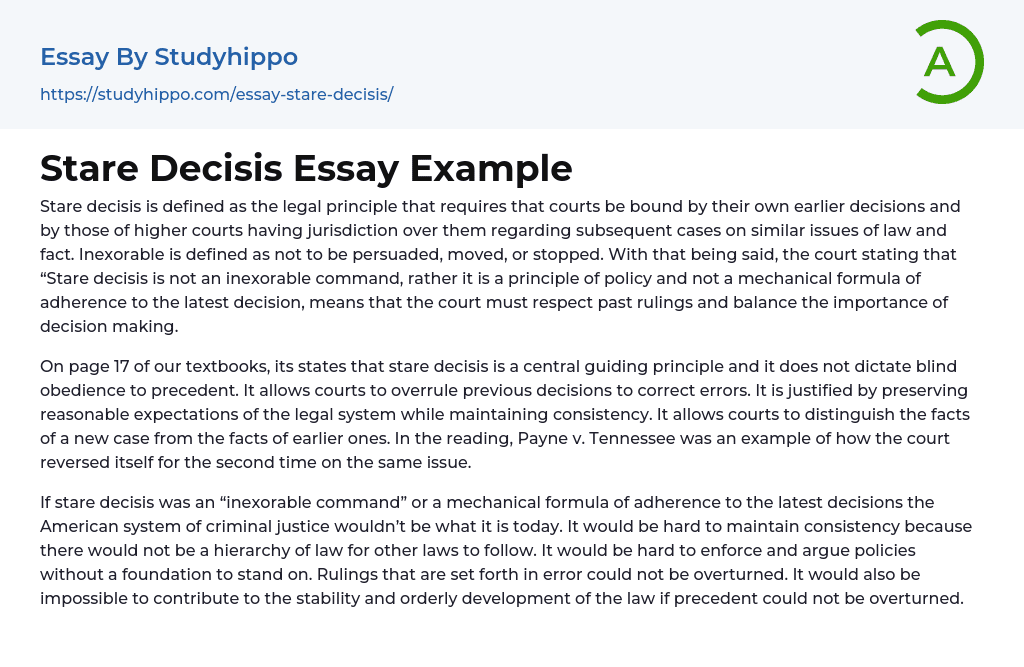Stare decisis is defined as the legal principle that requires that courts be bound by their own earlier decisions and by those of higher courts having jurisdiction over them regarding subsequent cases on similar issues of law and fact. Inexorable is defined as not to be persuaded, moved, or stopped. With that being said, the court stating that “Stare decisis is not an inexorable command, rather it is a principle of policy and not a mechanical formula of adherence to the latest decision, means that the court must respect past rulings and balance the importance of decision making.
On page 17 of our textbooks, its states that stare decisis is a central guiding principle and it does not dictate blind obedience to precedent. It allows courts to overrule previous decisions to correct errors. It is justified by
...preserving reasonable expectations of the legal system while maintaining consistency. It allows courts to distinguish the facts of a new case from the facts of earlier ones. In the reading, Payne v. Tennessee was an example of how the court reversed itself for the second time on the same issue.
If stare decisis was an “inexorable command” or a mechanical formula of adherence to the latest decisions the American system of criminal justice wouldn’t be what it is today. It would be hard to maintain consistency because there would not be a hierarchy of law for other laws to follow. It would be hard to enforce and argue policies without a foundation to stand on. Rulings that are set forth in error could not be overturned. It would also be impossible to contribute to the stability and orderly development of
the law if precedent could not be overturned.
- Federal government essays
- Armed Forces essays
- Confederate States Of America essays
- Federal Government Of The United States essays
- Fourteenth Amendment To The United States Constitution essays
- Governance essays
- Parliament essays
- Politics essays
- Jurisdiction essays
- Bureaucracy essays
- Separation Of Powers essays
- Congress essays
- President essays
- United States Congress essays
- Non-Commissioned Officer essays
- Appeal essays
- Revenge essays
- Corporate Governance essays
- Public Service essays
- Income Tax essays
- Supply essays
- Red Cross essays
- Democracy essays
- State essays
- Liberty essays
- Absolutism essays
- Reform essays
- Republic essays
- John Marshall essays
- Bourgeoisie essays
- Developed Country essays
- Elections essays
- International Relations essays
- Left-Wing Politics essays
- Monarchy essays
- Political Corruption essays
- Political Party essays
- Political Science essays
- Sovereign State essays
- United Nations essays
- World Trade Organization essays
- Contras essays
- Dictatorship essays
- Foreign policy essays
- Monarch essays
- Corruption essays
- Foreign essays
- Democratic Party essays
- European Union essays
- President Of The United States essays




